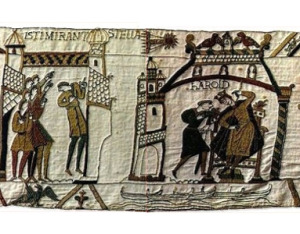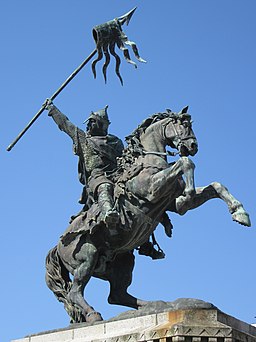Today is the anniversary of the legendary Battle of Hastings, which began the swift transfer of British control from the English to the Normans (Frenchmen of Norse decent), and also the swift transition of King Harold II of England from a living state to a state quite resembling that of death, complete with stuff sticking out of him.
Harold Godwinson had been elected king by a council of “wise men”. He was elected king because the actual heir, Edgar the Aetheling, was only a kid of about 14. When Harold got the nod from the council, Harald Sigurdsson (Harald III of Norway) also claimed the throne, which turned out to be bad news for Harold II of England.

When Harald (note the spelling) invaded England, he landed about 200 or miles north of London at the mouth of the Tyne river (whereupon he immediately started plundering the coast), so Harold had to drive his army hard to meet him. After several engagements, Harold was victorious. However, as Harold and his troops were resting after a four-day forced march to Tynemouth and five days of brutal 11th century warfare, Harold got word that William, Duke of Normandy had landed at Pevensey, moving east toward Hastings.
Harold moved swiftly south again to meet William just north of Hasting on a field now occupied by the ruins of Battle Abbey in the present day town of Battle, UK. By 9 a.m. the swords were swinging, and the battle was over about nine hours later. Harold was killed, either by an arrow to the eye, a mortal blow by a knight’s sword, or both–it’s unclear. However, what seems clear is that once Harold was killed, the English forces simply fell apart. By morning, William was clearly in charge of things in the area.
